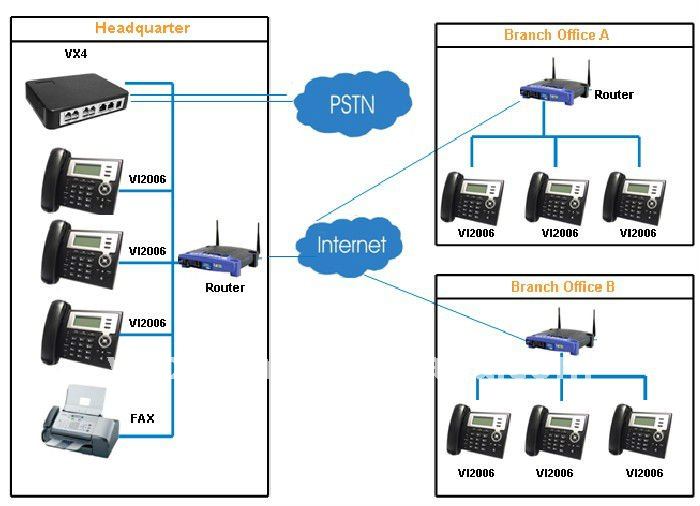PBX telephone systems are a wonderful addition in the world of communication, as they provide a business organization with endless and effective opportunities for affordable and profitable interactions. With PBXs, all incoming calls are routed towards the right departments of a company and in-house office calls are connected with one another respectively.
PBXs operate by sending the incoming calls to an automated attendant. This with the help of a pleasant pre-recorded vocal sound directs those calls to their corresponding destinations and employee telephone lines. Conversely, a PBX System leads and connects the outgoing calls to external callers.
Types of PBX Telephone Systems
- Traditional PBX
The phone box used in a traditional PBX is linked with a phone service provider, which helps the system in managing the extension lines. Old systems incorporated a switchboard operated by an individual and hence, they were completely dependent on operators unlike the PBXs of today, which are independent and automatic as well. All in all, traditional landlines are used by this system to make calls and connect them.
Today, those organizations use this system, which had already installed them before other advanced models came into existence. These companies have their own IT departments, which preserve and manage the system.
- Hybrid and SIP PBX
Users of this system can easily use internet services to make calls. It’s quite affordable and most suitable for those organizations, which are required to make overseas calls for business purposes. Corporations with traditional systems can reap high benefits from it as both systems can be connected very easily.
SIP PBX can be conveniently used by devices like mobiles and laptops.
- IP PBX
This upgrade of the traditional system is useful for those companies, which use internet connection to make and accept calls to and fro their clients. You require a sole telephone line, which can be effortlessly extended, if expansion of business connections is required. There are insignificant maintenance needs and a company must purchase and install the system for aiding and enhancing its communication structure.
Calls consume very little amount of space and overall expenses are considerably lower. This system comes with a lot of features and therefore, it’s a right choice for organizations who desire to have unswerving control over their PBX configuration.
- Hosted and Virtual PBX
For hosted PBXs, companies are required to make their payments on a monthly basis, so that they can enjoy the benefits of PBX systems without any hassle. No preliminary investment is needed and it can be afforded by every business, according to its budget. It’s a suitable option for those, who wish to save some money for their business.
Virtual PBXs require internet in order to be operated and that’s why, they are appropriate for the institutions, who don’t have to make numerous external calls. If you only need features like on-hold music and voicemail, virtual PBXs are your best bet.
Lastly, each type has its own strengths and advantages so you must be very careful in making a decision. Choose an appropriate system by considering factors like size, availability of resources and average figure of callers per day.

